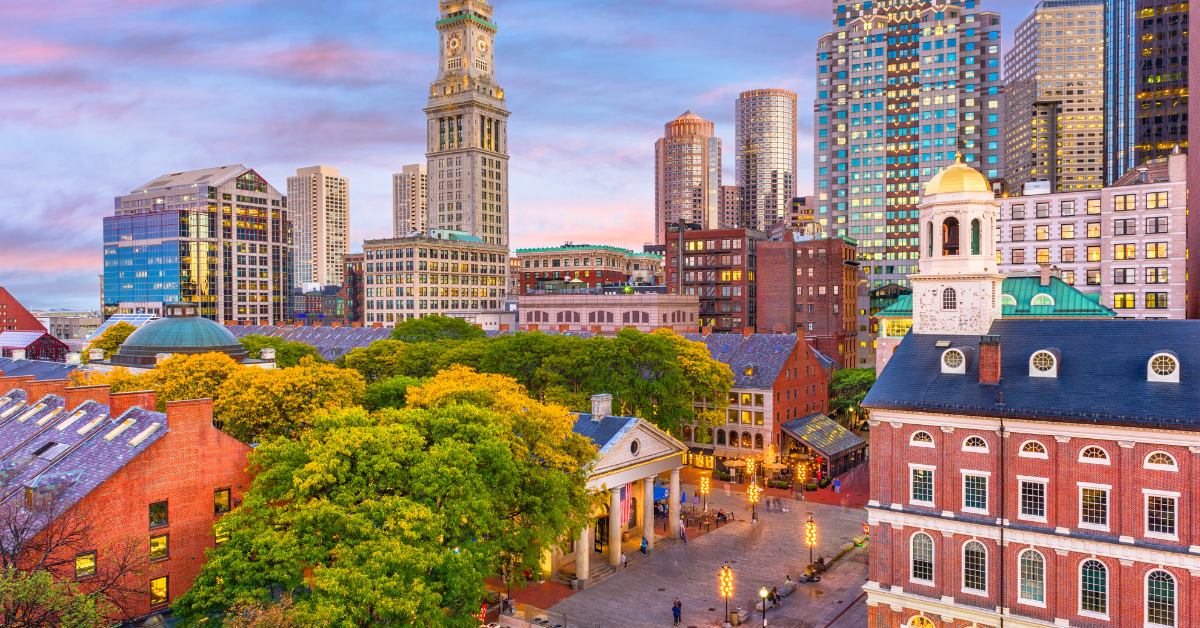Boston, one of the most historic cities in the United States, is represented in Japanese kanji as “波士敦” or “波士頓.” These phonetic notations reflect not only linguistic adaptation but also cultural perspectives. For Japanese people, Boston stands out as a city of knowledge, history, and sports, offering a unique combination that inspires fascination and admiration.
Kanji Notation: “波士敦” and “波士頓”
Boston can be written as either “波士敦” or “波士頓” in kanji. Both are phonetic transcriptions, with their usage differing depending on cultural and regional contexts.
| Notation | Reading | Region of Use | Characteristics |
|---|---|---|---|
| 波士敦 | Boston | Japan | Appeared in newspapers and books from the Meiji period onward; familiar to Japanese readers |
| 波士頓 | Boston | China and Taiwan | Still widely used today; the mainstream in Chinese-speaking regions |
This distinction goes beyond language; it reflects how different kanji-based cultures interpret foreign names.
The Three Images of Boston in Japan
Boston as an Academic City
Boston is often called the “City of Knowledge” because of its concentration of educational institutions. Harvard University and the Massachusetts Institute of Technology (MIT) are world-renowned, and many Japanese students have studied there.
| University | Characteristics | Connection with Japan |
|---|---|---|
| Harvard University | One of the oldest and most prestigious universities | Many Japanese politicians and scholars studied here |
| MIT | Leading center of science and technology | Strong ties in innovation and joint research |
| Boston University | Strong in medicine and the arts | Known for fostering Japanese artists and physicians |
Thanks to such institutions, Boston is regarded as an ideal place for academic pursuit.
Boston as a Historic City
Boston is widely recognized in Japan as the stage for the Boston Tea Party, a symbolic event of the American Revolutionary War. Walking through the city, visitors encounter numerous historic sites and museums that convey the nation’s founding era.
| Historic Site | Description | Why Japanese Know It |
|---|---|---|
| Boston Tea Party Site | The protest that sparked the Revolution | Featured in Japanese school textbooks |
| Freedom Trail | A walking route connecting historic landmarks | Accessible and popular among tourists |
| Massachusetts State House | A symbol of politics and history | Helps understand the founding of the U.S. |
Thus, Boston leaves a strong impression on Japanese visitors as a city where history and culture can be experienced firsthand.
Boston as a Sports City
Boston is also known for its vibrant sports culture, made even more familiar to Japanese fans by the success of Japanese athletes.
| Team/Event | Sport | Connection with Japan |
|---|---|---|
| Boston Red Sox | Baseball | Daisuke Matsuzaka and Koji Uehara played here |
| Boston Celtics | Basketball | One of the most famous NBA franchises |
| Boston Bruins | Ice Hockey | Renowned team in the NHL |
| Boston Marathon | Athletics | Many Japanese runners have competed |
In particular, the Red Sox resonate with Japanese fans, and Fenway Park is both a sports landmark and a tourist attraction.
The Psychological Distance Between Boston and Japan
Compared to New York, Boston offers a quieter, calmer atmosphere. Japanese people view it as a city where one can study or research with focus, while also enjoying arts, music, and sports.
The cityscape features many European-style buildings, giving it a unique blend of American dynamism and European charm. This combination provides Japanese visitors with both comfort and fascination.
Conclusion
In Japanese, Boston is more commonly written as “波士敦”, while in Chinese-speaking regions “波士頓” is standard. Both are phonetic renderings, reflecting cultural and regional differences.
For Japanese people, Boston embodies:
- Academics (world-class universities and research centers)
- History (a stage of the Revolutionary War)
- Sports (baseball, basketball, and more)
Together, these aspects make Boston remembered as a city where knowledge, culture, and sports merge, leaving a deep impression on Japanese minds.






